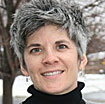Commentary on Ecclesiastes 1:2, 12-14, 2:18-23
It is the beginning of August. You are two-and-a-half months into Pentecost with three-and-a-half months to go. Perhaps you are need of a little adrenaline rush.
Enter stage right: Qoheleth, the Hebrew name of the book which has come to be known as Ecclesiastes. Qoheleth made the canonical cut against all odds. He is honest, he is cynical, and he appears to be the pre-Thomas doubter. Ecclesiastes is truly the bungee jump of Hebrew Scripture’s wisdom literature. Is your congregation ready? I leave that to you. Are you ready? If so, read on.
Some of you may be thinking there just is not enough substance in this pericope for a sermon. Others of you may be concerned that Ecclesiastes will only invite deeper suspicion from your congregation’s cynics. Still, others of you may think the only value in this biblical book is its famous sound bites, “Eat, Drink, and be Merry,” or “For everything there is a season,” to name a couple. To these suspicious views (How Qoheleth of you!), I have this response, “Hevel! Hevel! All is Hevel!” Or, as the NRSV puts it, “Vanity of vanities! All is Vanity!” In other words, I am suspicious of these views and invite you to consider this pericope’s homiletical fodder.
Qoheleth is the Hebrew word for someone who speaks to an assembly. That’s you. (Interestingly, Luther translated this book, Der Prediger, or, The Preacher.) Somehow, some folks saw fit to hand this one the microphone, so to speak. The following elements suggest why I am thankful they did and serve to spark your engagement with this text (if not for the sole focus of your sermon, at least for a cameo).
First, the way in which Qoheleth speaks can serve as a model for laying bare our claims for the sake of conversation. His honesty is a breath of fresh air. While his stark speech takes some getting used to, once given a hearing, one notices he is on to something. Here is one who has tried and tried again to legitimize and/or justify his life through reason. In the end he cannot do it. No wonder he is frustrated. Perhaps he airs his frustration to help those who have done the same, and concluded the same. Qoheleth does what some are asking of the church. He “keeps it real!” His honesty is an access point for the doubters in your congregation and those faithful ones who inevitably have moments of doubt.
Second, one of the things Qoheleth admits is a sense of meaningless and despair regarding those things which one would have expected to provide a sense of meaningfulness and joy; namely, wisdom or reasoning and work. Of course, Qoheleth was not privy to Luther’s doctrine of vocation; that is, recognizing that the work we do is not simply work, but actually a calling from God which God desires us to fulfill. Perhaps the reason this vocational view of work is so attractive is precisely because in and of itself, our toil is, as Qoheleth calls it, “hevel” (vanity). Hevel, to be clear, is that which is fleeting, like an ephemeral puff of wind which cannot be grasped, concretized, or hung on the wall. (By the way, this word is repeated 9 times in this pericope. In other words, it is not to be missed.)
Set alongside the “Parable of the Rich Fool,” one cannot help imagine that Qoheleth would say that even storing up treasure and using one’s reason to solve the conundrum of what to do with such treasure, is “hevel.” According to Qoheleth, one cannot win. Doing as the rich fool does and building larger storage bins is “hevel.” Even doing so for the enjoyment of future generations is “hevel.” (“I hated all my toil in which I had toiled under the sun, seeing that I must leave it to those who come after me and who knows whether they will be wise or foolish? Yet they will be master of all for which I toiled and used my wisdom under the sun.”) So much for “leaving a legacy.” (You were warned that this would get the adrenaline pumping.)
A challenge for the preacher will be to take the seemingly foolish action of the rich man to relax, drink, eat, and be merry (now that he has ample goods stored up) and square that with Qoheleth’s overall contention (not explicitly addressed in this Sunday’s pericope but certainly evident when Ecclesiastes is read as a whole) that the only thing we are left to do is to eat, drink, and be merry. It is this contention by Qoheleth that is the third reason I am grateful that he has had his say. For Qoheleth, to eat, drink, and be merry is an act of faith toward God. Ultimately, try as he might, Qoheleth cannot not (sic) believe. Ultimately, he is faithful. This is the difference between Qoheleth and the rich one in Luke 12. The latter is a fool because he stores up treasures for himself and not for God.
Allowing this text to speak through your sermon might create a space for your hearers to face their own skepticism and/or cynicism. But first, it will likely have to create space for you to do the same. Perhaps such honesty may lead you and/or your hearers to affirm faith in God as it did for Qoheleth.
What began as a much-needed jumpstart in the middle of the long season of Pentecost continues with a welcomed invitation in the middle of summer to worship God through enjoyment of all life’s joys and pleasures.

August 1, 2010